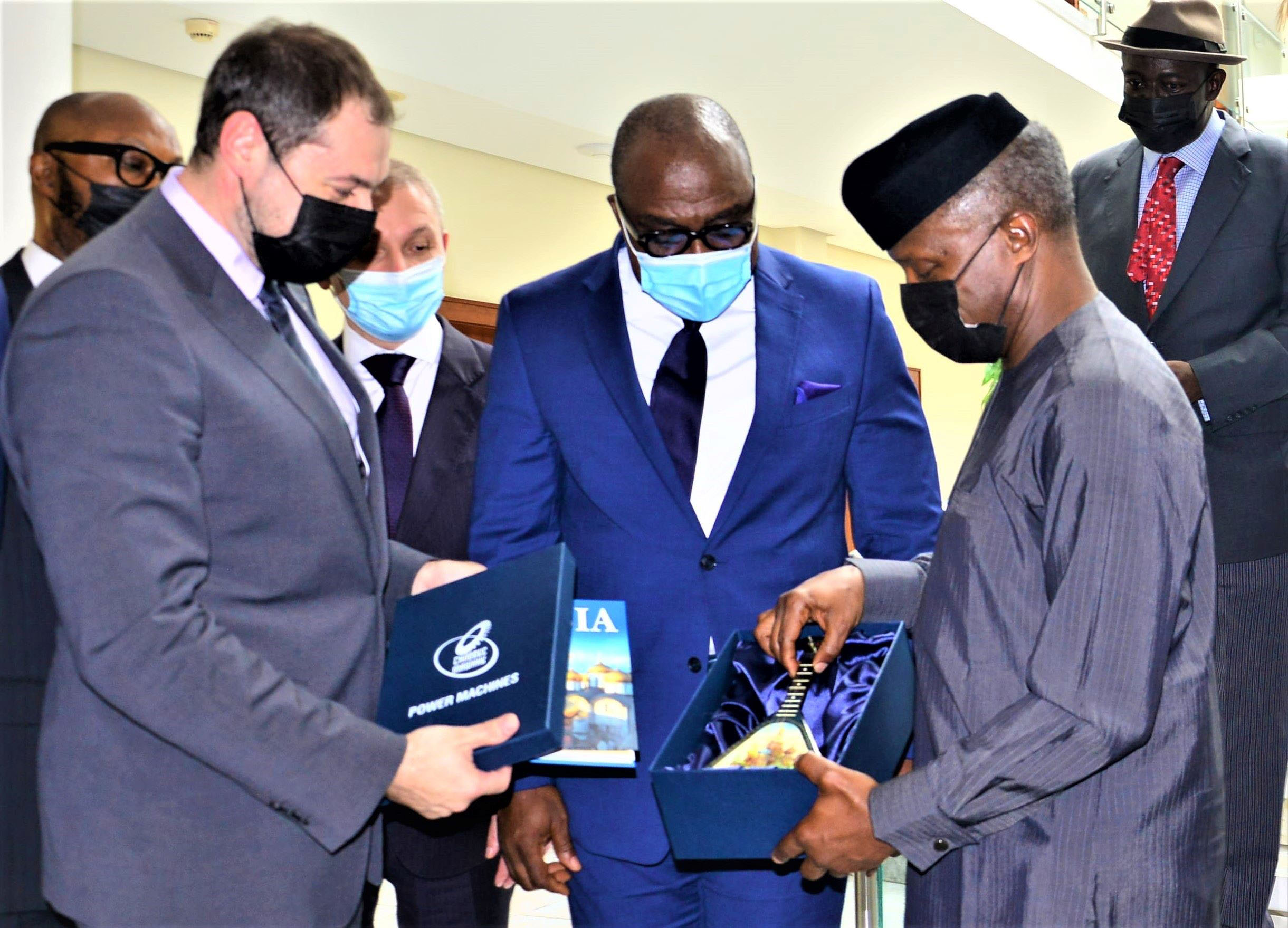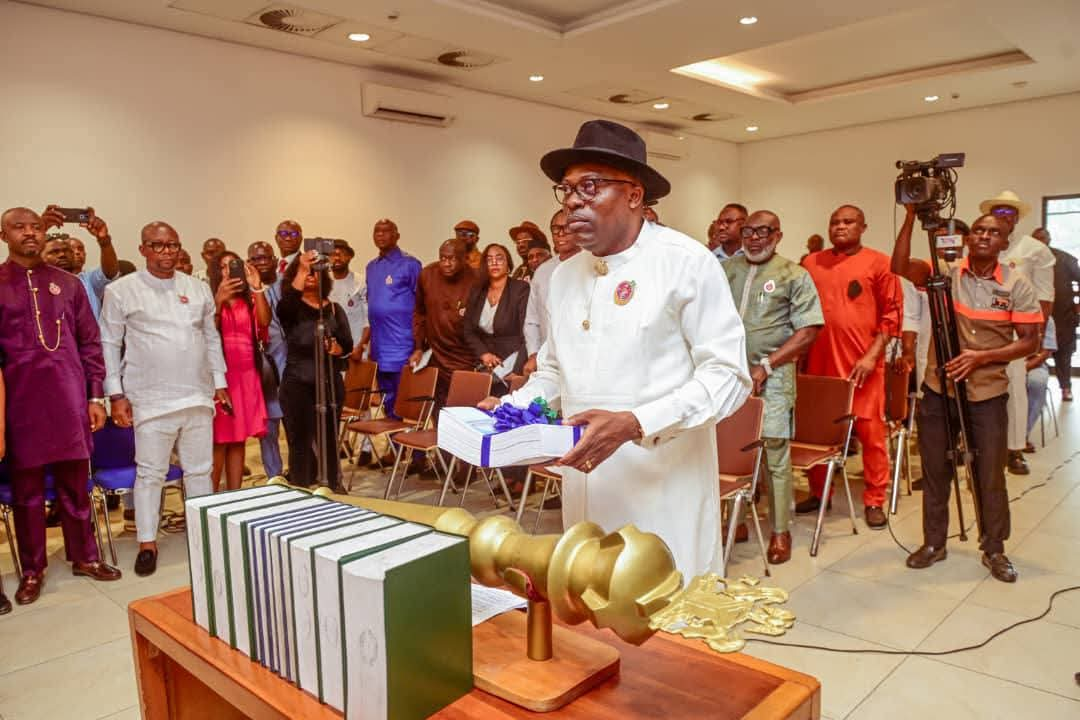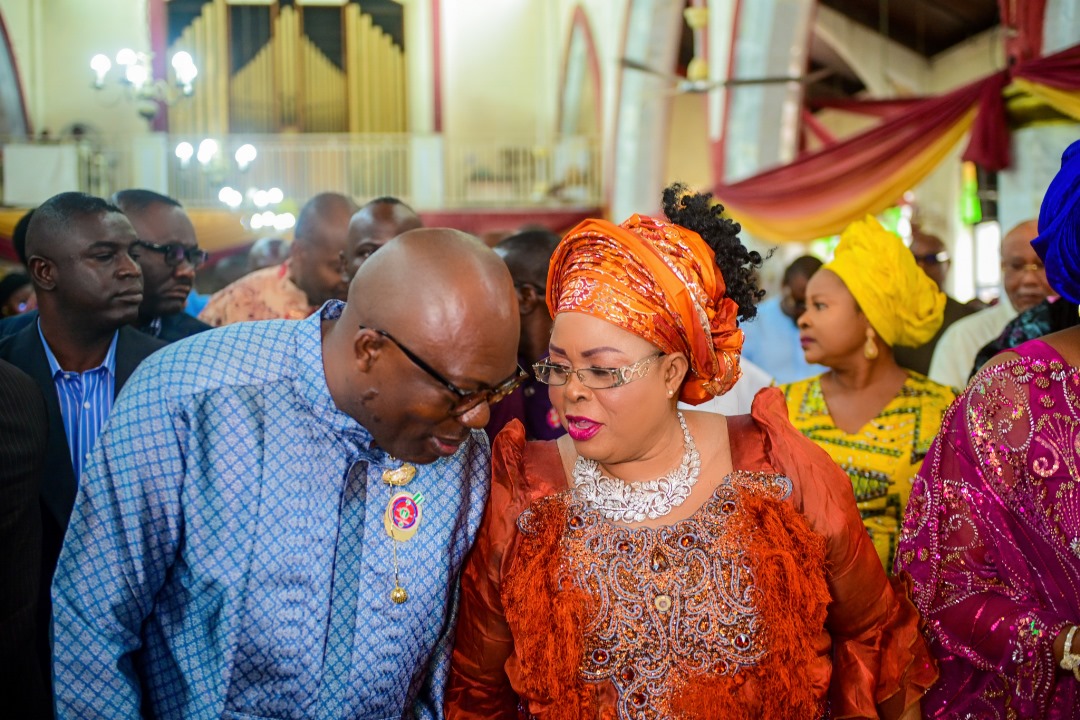Editorial
Leveraging Nigeria’s 5G Policy

Technology is a meaningful part of human life or existence and this is true for a fact in Nigeria.
Africa’s giant is one of the technological hotspots across the African continent and makes great use of digital resources to prosper. A technology leap that many Nigerians are anxiously awaiting is the deployment of 5G.
Nigerians were exhilarated when the Minister of Communications and Digital Economy, Isa Pantami, announced that the Federal Executive Council (FEC) had approved the Fifth Generation Network, also known as 5G for Nigeria. Pantami said that the council, in ratifying the 5G, took cognizance of the report of the International Telecommunications Union (ITU) and the World Health Organisation (WHO) that pronounced it safe to human health.
Assuring the safety of Nigerians, the minister said that the radioactivity of the network was lower than that of the 4G currently in use. He revealed that the deployment of the plan would be implemented in phases between now and 2025 and listed the benefits of the policy to include higher data rate, fuller capacity, lower latency, job opportunities and necessary assistance to the security agencies in localities where the high-quality frequency was lacking.
What is 5G? Very simply put, this is the next generation of mobile broadband. A real step up from the current 4G networks, it guarantees to be of great benefit to personal and business activities. 5G is the acronym for the Fifth Generation of wireless communications. Experts assert that it is an advancement on the previous 3G and 4G that can provide much faster connectivity and speed up technologies like the Internet of Things (IoT) and Artificial Intelligence (AI).
Oddly enough, Nigeria was the first African country to test 5G but was not able to implement it. However, South Africa was the first to apply it, using Vodacom and MTN in 2019. Kenya came in second place last April when the network was run, utilising Nokia and Huawei simultaneously. Although 5G is still not widely available, more and more African countries are embarking on testing. Telecommunications in Morocco, Egypt, Gabon, Uganda and Lesotho are carrying out preliminary conduction tests. Even in this case, it may take longer to adopt the technology as a whole.
According to some connoisseurs in information technology, when the 5G network becomes heart and soul operational across the country, it should equally convey a boost to businesses, especially as they are increasingly going online in the modern age, and taking advantage of digital channels to prosper. Of course, this can be noticed in the way Nigerian companies use online marketing to boost brand awareness or sell their products worldwide through digital platforms and websites. An effective 5G network is expected to help Nigerian businesses work faster, more flexibly and more productively.
However, despite the pontifical benefits, controversies, theories and myths have consistently stood in the way of the Federal Government’s declaration to roll out the Fifth Generation network in the country. There are apprehensions as to the likely harmful impact of the latest technology to the country, with some quarters citing cybersecurity and privacy threats, while others have referred to possible health-related predicaments from electromagnetic radiation and other negative impacts on the environment. Those concerns must be dealt with as the technology becomes operational in Nigeria.
Other claims still deal with health risks since the launch of 5G in China and its deployment in several other countries. They are Covid-19 vaccines contain 5G microchips; that 5G release is used to cover up the Covid-19 pandemic; and that 5G causes headaches, migraines, and dizziness and even cancer. In addition, it is believed to suppress the immune system and increase the risk of SARS-CoV-2, which causes Covid-19.
Nigeria’s National Security Adviser (NSA), Major-General Babagana Monguno (rtd), also raised critical national security concerns and caution regarding the introduction of the Fifth Generation (5G) network. Monguno spoke at the Senate investigative hearing on the current state of the 5G network in Nigeria and its technological impact on citizens, where he posited that if misplaced and left in the wrong hands, it could pose a threat to national security.
Many countries are finding it difficult to deploy the technology mainly because of the challenges and myths characterising it as well as its introduction. Similarly, Nigeria has its obstacles that have impeded the execution of the technology in the country. That was acknowledged by Pantami as one reason for the seemingly late take-off of the policy.
But those who should know better have come out invincibly to debunk the misgivings. The United Kingdom government recently issued perhaps the strongest rebuttal of these figments of the fertile imagination of some self-styled scientists. “There is absolutely no credible evidence of a link between 5G and Coronavirus; inaccurate information was being spread online about 5G”, the UK’s Department of Digital, Culture, Media, and Sport (DCMS) noted.
Though the reservations against the network are not scientifically proven, they must not be disparaged as there is a need for constant enlightenment to instil credence in Nigerians about the safety of the 5G technology. Enlightenment has to be intensified to encourage broader endorsement of the policy. Nobody should be held execrable for the pervasive misconception of robotics. When the origin of both the Covid-19 pandemic and the 5G technology is examined, it may easily be understood why people inter-relate them.
Notwithstanding the disinclinations, we believe the perks derivable from effectual 5G network deployment far outweigh the handicaps. Therefore, the Nigerian government should proceed with the declaration of information technology and telecommunications as vital infrastructure to facilitate the broadband strategy. Governments at all levels must also enhance their efforts to incorporate information technology with its potential to facilitate governance and deracinate corruption in the country.
The exhaustive adoption of information technology and migration of state operations from manual to digital will certainly ensure that the country conforms to the benchmark of government operations in the 21st century. 5G remains the best technology available; therefore, adopting it now is more suitable for the country to avoid playing catch-up later, which would be more exorbitant to bear up under.
Editorial
Fubara’s 2025 Budget Of Inclusive Growth

Editorial
Opobo And The Proposed Higher Institution

Editorial
A New Dawn For Rivers’ Workers

Workers in the Rivers State civil service have been eulogising Governor Siminalayi Fubara for delivering on his promise to implement a new minimum wage of N85,000, which was reflected in the salaries paid for November. This increase is N15,000 higher than the national minimum wage of N70,000. This represents not only an enhancement in the financial welfare of civil servants but also a recognition of their hard work and dedication to public service. The raise has been met with widespread jubilation among the workforce, who have long advocated for a better wage to cope with rising living costs and economic challenges.
As the news spread, offices filled with laughter and sigh of relief, as employees exchanged stories of how this financial boost would positively impact their families and dependants. The new minimum wage is not just a number; it symbolises the government’s commitment to improving the standards of living for civil servants and fostering a more equitable workforce. Many workers expressed their gratitude for the governor’s timely intervention, highlighting how important it is for public servants to feel valued and adequately renumerated.
Governor Fubara’s decision is expected to reinforce morale within the civil service, fostering greater productivity and dedication among employees who contribute significantly to the state’s development. With the new wage in place, there is a renewed sense of optimism among civil servants, who now feel more empowered to serve the government and the citizens with greater enthusiasm and commitment.
The Governor had declared an increase in salaries for state workers, emphasising that this adjustment is not only a reflection of the government’s commitment to improving the welfare of its employees but also a strategic move fueled by the state’s enhanced Internally Generated Revenue (IGR). He assured workers that the financial backing for this increment is sustainable, stemming from the state’s focused efforts to bolster revenue through various initiatives, including tax reforms and enhanced efficiency in public service delivery.
Furthermore, the governor’s promise of funding the increment solely through increased IGR signifies a commitment to fiscal responsibility and transparency. It reassures the people that the government is proactively managing resources while investing in their future. As the state continues to explore opportunities for revenue enhancement, Fubara’s administration remains focused on ensuring that these initiatives translate into tangible benefits for the workforce, ultimately fostering a more motivated and dedicated public sector.
The decision by Fubara to be the first in Nigeria to implement the new national minimum wage is a commendable step that reflects a proactive approach to governance and an understanding of the pressing needs of the workforce. In an economy where many families struggle to make ends meet, especially in the face of rising living costs, this enterprise will improve the quality of life for workers and also set a precedent for other states to follow.
In recognising the various drives and support provided by Fubara’s government, it is necessary that the workers reciprocate by embodying a spirit of productivity and commitment to the current administration’s goals. They should align their daily operations with the administration’s objectives to enhance effectiveness and foster an environment of collaboration and trust. This reciprocal relationship can lead to innovative solutions and efficient service delivery, ultimately benefiting the state and strengthening public trust in government institutions.
Surprisingly, despite the political challenges the government has been navigating, alongside the myriad of ambitious projects it is embarking on, it has managed to raise funds to implement a minimum wage of N85,000 This achievement reflects a commendable level of resilience and resourcefulness within the government’s fiscal strategies. In a nation often marred by economic volatility and political discord, finding a way to sustain and even elevate the livelihoods of its employees is no small feat.
Workers in the state have truly found themselves in a remarkably advantageous position under this administration, especially when compared to the previous regime. The immediate past government’s blatant refusal to implement the minimum wage of N30,000 left many employees disheartened and struggling to meet their basic needs. What was even more disconcerting was the absence of meaningful negotiations with labour representatives, leaving workers feeling unheard and undervalued. In contrast, the present administration has prioritised dialogue and engagement with labour unions, recognising the importance of fair wage for workers’ contributions to the state’s economy.
With the current government’s commitment to improving wages and working conditions, it is clear that a major shift has taken place. This renewed focus on the welfare of workers empowers them and instils a sense of hope and optimism for the future, as they can now look forward to a more equitable and supportive work environment. Ultimately, the ongoing trajectory suggests a promising era for labour relations in the state, one where workers are valued and their rights upheld.
Siminalayi Fubara has consistently demonstrated his dedication to workers’ welfare since taking office in May last year. Unlike his predecessor, who left many employees feeling overlooked and unsupported, Fubara wasted no time in addressing the longstanding stagnation of promotions that had plagued the workforce for eight years. He took further steps towards financial justice by initiating the long-overdue payment of gratuities that were neglected during the last administration.
Similarly, we urge the governor to take another step forward by reviewing the stipends received by pensioners. The current pension amounts have become woefully inadequate, leaving many of them who dedicated their lives to public service struggling to make ends meet. These dedicated individuals who have contributed to the development of our dear state now find themselves in a precarious financial situation, receiving stipends that are alarmingly low and insufficient to cover basic living expenses. The rising cost of living has rendered their pensions nearly meaningless. Therefore, a comprehensive reevaluation of these stipends is a required measure to ensure that those who have served our state with honour can live their remaining years with dignity and security.
-
Rivers4 days ago
Council chairman recounts achievements in 100 days in office
-

 Niger Delta4 days ago
Niger Delta4 days agoA’Ibom Police Nabs 4 Fire Service Trucks Theft
-
Niger Delta4 days ago
CP Urges Journalists To Verify Information Before Publishing
-
News4 days ago
RSG Confirms Nine Deaths From Cholera Outbreak
-
Rivers4 days ago
Omuma LGA Boss Inaugurate 11 man Scholarship Board
-

 News4 days ago
News4 days agoAbbas, Kalu express grief over Deputy Chief Whip, Onanuga’s death
-
Niger Delta4 days ago
Diri Gives Stewardship On Infrastructure Development
-
News4 days ago
Govs Back Tax Reform Bills, Reject VAT Increase

